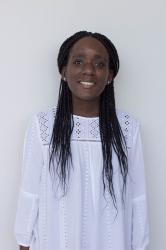Image courtesy of naacp.org
The National Association for the Advancement of Colored People is a prominent organization at Georgia Southern University. Their purpose is to create justice for people of color and educate and encourage them to have a voice on campus.
The NAACP organization originated in 1909, and the students in the GS organization aim to portray what it stands for by challenging policies, promoting public awareness and looking for ways to better the community. The NAACP is the largest and most recognized civil rights group of all time with more than half a million members in the country, and their purpose is to create equal opportunity for everyone in the United States and conduct voter mobilization.
I interviewed Wyndell Little from the GS chapter of the NAACP. Wyndell is a senior at Georgia Southern University with a major in Information Technology. He is the parliamentarian of NAACP, and he enjoys “having a place where people can come and learn.”
“Basically, what we like to do is have presentations at our general body meetings every Tuesday to teach us about something interesting or teach us something not well-known about the African-American culture or other ethnicities,” Little said.
I attended one of their meetings. The discussions were very lively, intelligent and full of substance. They spoke on job interviews, relationships, how society may view people of color differently and other pressing issues.
“Things can be controversial, and we want to know what our general body feels about it, and we also want to know what new people feel about it. We like to offer that open space where people can talk about certain issues, such as this recent election,” Little said.
Little said he never really felt apart of the school until he joined this organization.
“I feel like a different person after working so hard to earn this position. We also work with other organizations, such as ASA and CSA. We know about incoming protests, or incoming marches, and we’ve been a part of those too. I just feel more a part of being an activist on campus, and I feel more welcome,” Little said.
There were protests and marches that took place earlier this semester regarding the ”trigger-ish” incident and a situation where a professor decided to use the N-word in class. Several members of the NAACP participated in these events, and it made a huge impact on campus.
“Before NAACP, I was a sheltered kid, and it’s nice to get out there in NAACP,” Little said.
I met with Aston Johnson at the Zaxby’s on Chandler Road. Ashton is the president of NAACP at GS and he said the NAACP has exposed him to things going on in the government and public policy.
“I’ve learned more about discrimination and how it affects others,” Johnson said.
Like Little, Johnson spoke on the “trigger-ish” incident as well as the professor using the N-word. He said this organization has helped him get involved in fighting and bringing awareness to injustices that have taken place. He mentioned voter registration suppression issues in the 2018 election.
“It’s showed me how much stuff still goes on every day oppression-wise for things we thought were done with fifty years ago,” Johnson said.
To Johnson, the NAACP is a way to weave out discrimination and to promote unity for people of color.
“Color doesn’t just mean black. I mean Latino, Hispanics, Native American, any person of color. It’s supposed to knock down those boundaries as far as discrimination holding certain people back,” Johnson said.
The NAACP was set in motion with the goal of creating equal opportunity for people of all races and ethnicities. In 2000, the organization created the “Get Out the Vote” campaign. The chapter of the NAACP at GS likewise encouraged students to vote in the 2018 midterm election.
Johnson said, “On this campus specifically, we focus a lot on voter suppression, and I’m sure you’ve heard of the discrimination that takes place on campus. Last year, we participated in March for our Lives as far as the school shootings that still occur today. We focus on so many aspects, but in my own words, we try to make society a better place for those of us who are people of color and not as privileged.”





